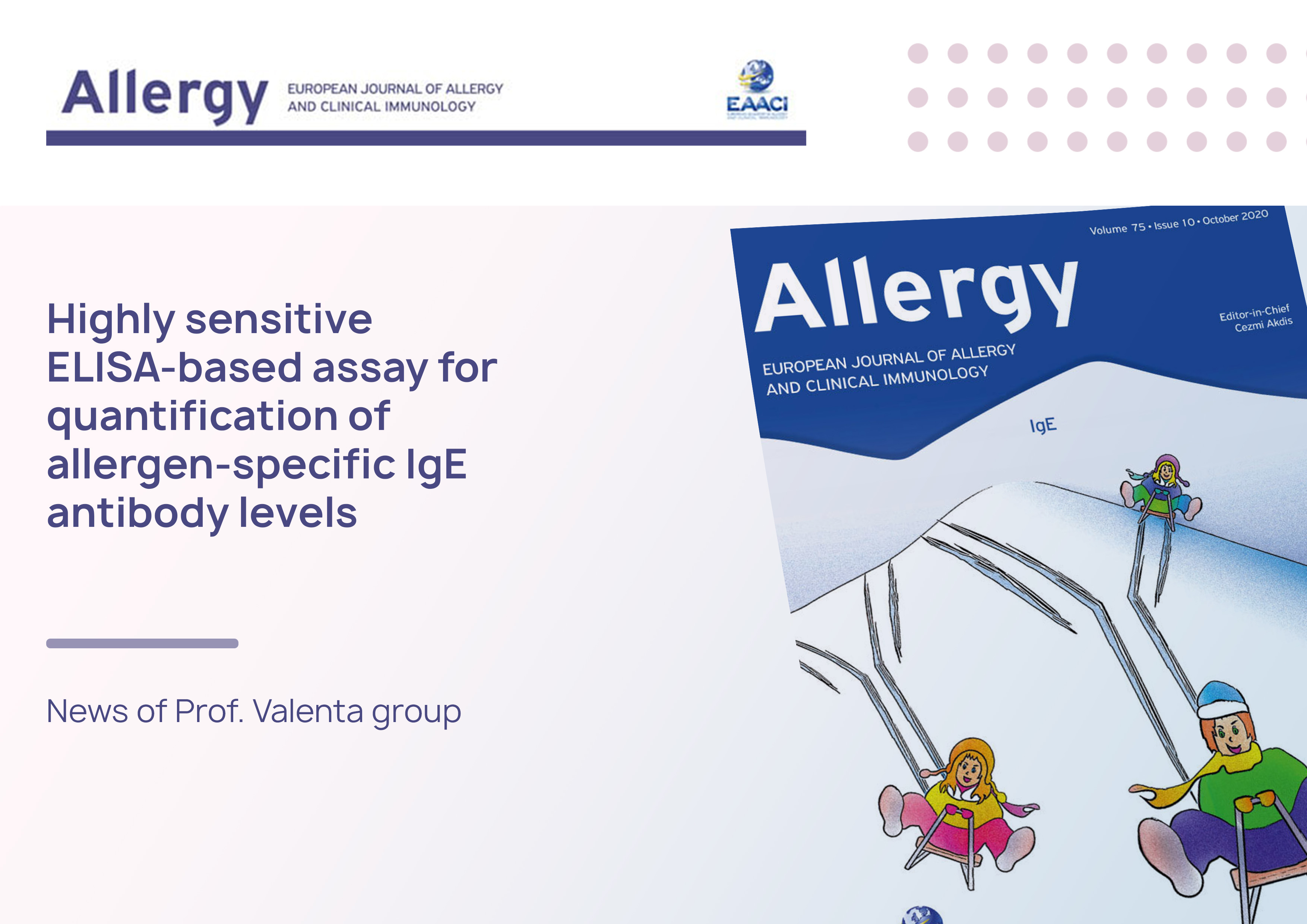Highly sensitive ELISA-based assay for quantification of allergen-specific IgE antibody levels
Karsonova A, Riabova K, Villazala-Merino S, Campana R, Niederberger V, Eckl-Dorna J, Fröschl R, Perkmann T, Zhernov YV, Elisyutina OG, Fedenko ES, Khaitov MR, Fomina D, Beltiukov E, van Hage M, Grönlund H, Valenta R, Karaulov A, Curin M. Allergy. 2020 Oct;75(10):2668-2670. doi: 10.1111/all.14325. Epub 2020 May 27
To the Editor,
Allergy is the most common immunologically mediated hypersensitivity disease worldwide affecting upper and lower respiratory tract, the skin as well as the gastrointestinal tract and may cause life-threatening anaphylaxis.1 Immunoglobulin E (IgE) occurs in extremely low amounts in blood and tissues but is the key immunoglobulin in allergy. The quantification of allergen-specific IgE levels (sIgE) in serum and body fluids is important because sIgE concentrations are useful to define clinical phenotypes of allergy and to predict the intensity of allergic reactions.2-5 However, quantification of sIgE requires special instruments (eg, ImmunoCAP) that are available only in industrialized countries, large volumes of serum and is quite expensive.6 Therefore, the goal of our study was to establish a quantitative method for measuring allergen-specific IgE based on a simple ELISA technology which can be implemented and used in all parts of the world. The user will thus need only equipment for ELISA, reagents, detection antibodies and test allergens plus reagents for the IgE standard curve.




